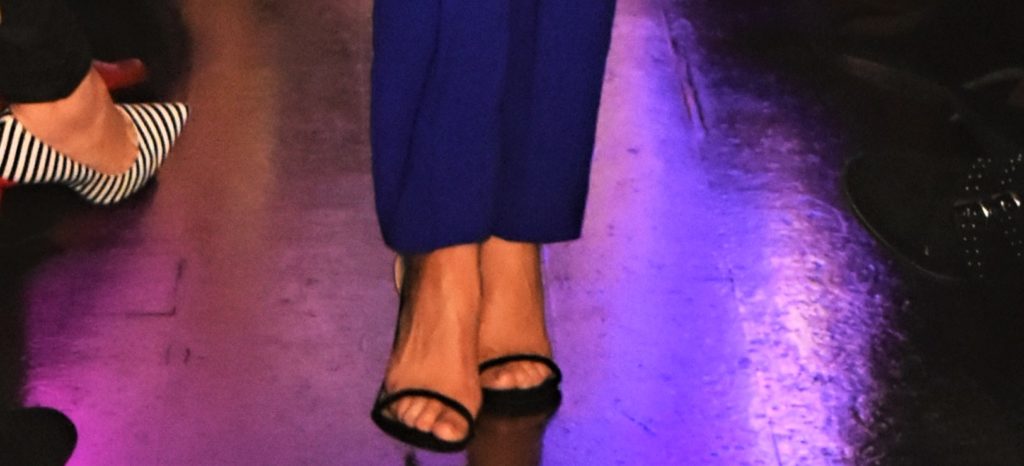Coronavirus survival rate on clothing likely to be low
WHILE the fashion industry rolls out a campaign against the coronavirus and in support of designers and healthcare workers by producing safety wear, experts are weighing in with research findings of coronavirus survival rates.
It quickly became established that the virus can live on copper surfaces for just four hours and anything up to three days on synthetic materials including plastic and stainless steel, but survival rates have been trickier to track on clothing.

Footwear is not an appreciable source of carrying the Covid-19 virus says experts
The best educated guess is that with the exception of frontline healthcare workers and those caring for someone with the virus, the rest of us are fairly safe, even from our footwear.
“We don’t believe that shoes or clothing are a significant source of transmission, Dr Vincent Hsu, a board-certified physician of Internal Medicine told healthline.com in a recent interview. “There is a lot we don’t know about this virus and we are learning a lot every day. But this is our current understanding, if you are out for a run in your neighbourhood or making a quick visit to the grocery store, it is highly unlikely that you would contract Covid-19 via your clothes or shoes.”
With much of the research based in the study of influenza, there have as yet, been no documented cases of Covid-19 transmission from clothing and shoes. Higher risk groups such as healthcare employees are strongly urged to sanitise often, and most household detergents are enough to kill the virus.
“Our best studies in this area are with influenza and other previously known viruses, but clothing in general is not thought to be the best incubator of viruses,” said CommonSpiritHealth Vice President Dr Kathleen Jordan. “Clothing is usually more of a mesh than a hard surface which could potentially aerate the environment more readily.”

Expert advice is that in normal wear, clothing does not present a significant source of the Covid-19 virus
The best advice most frequently proved is that social distancing is working against spreading the virus, and as research continues clothing is likely to remain low on the list of infection sources.
“Preliminary research has suggested the virus can survive longer on harder surfaces like plastic and metal,” said MyHealthcareClinic Medical Director Dr Akash Patel, GP. “However, it is likely that the virus will not survive as long on soft surfaces.”
At the top of the list, vigorous hand hygiene is most effective against the virus, better than wearing gloves which can come in contact with any surface and expose the wearer by touching the face. When in doubt though, the advice is to avoid shaking clothing out, wash on the highest recommended laundry setting and when necessary, wipe down shoes with alcohol.
“There is a minimal chance that (the coronavirus) can survive on your clothing or shoes and be transmitted to others,” said New York City emergency physician Dr Robert Glatter. “The bottom line is (that) it is person to person transmission, not clothing to person or shoe to person transmission in any significant way.”
ENDS




